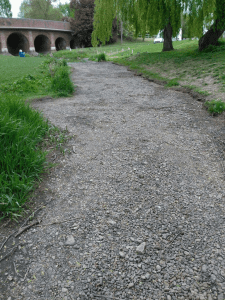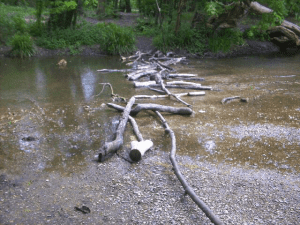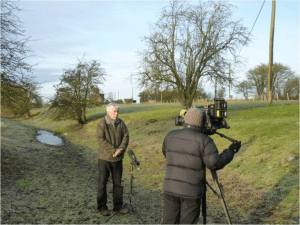Here we go again. Just three years after the ‘biblical floods’ of 2014 our rivers are running dry and the first media reports are emerging of water restrictions and impending hosepipe bans.
http://www.telegraph.co.uk/science/2017/05/03/homeowners-warned-cut-water-use-summer-droughts-loom/
This comes as no surprise to those of us who fish our rivers and play close attention to rainfall and water levels. But for some reason it always seems, despite all the sophisticated modelling and forecasts that are now available, to catch our politicians by surprise. Admittedly there are one or two who get it and I’d like to give a particular mention to the Hertfordshire MP Charles Walker MP, my successor as Chair of the All Party Parliamentary Angling Group who has been tabling parliamentary questions on the impending drought since January but with very little response from ministers.
http://www.telegraph.co.uk/science/2017/05/03/homeowners-warned-cut-water-use-summer-droughts-loom/
This comes as no surprise to those of us who fish our rivers and play close attention to rainfall and water levels. But for some reason it always seems, despite all the sophisticated modelling and forecasts that are now available, to catch our politicians by surprise. Admittedly there are one or two who get it and I’d like to give a particular mention to the Hertfordshire MP Charles Walker MP, my successor as Chair of the All Party Parliamentary Angling Group who has been tabling parliamentary questions on the impending drought since January but with very little response from ministers.


The River Ver at Redbourn in Hertfordshire has run dry in April
We can forget all about ‘April showers bringing forth May flowers’ as this last month is the driest on record in parts of the South East and the UK as a whole has seen just 41% of the average April rainfall. This followed a particularly dry winter with just 70% of average rainfall for England – far less in Essex, Hertfordshire and Kent – leaving groundwater supplies dangerously low before the summer has even begun.
Across the Thames Water region where I live we’ve had just 7mm of rain in April – that’s a derisory 15% of the 131-year average for the month and brings the October-April period to 67% of the 131-year average. Other parts of the South East are even worse.
Here’s a few highlighted snippets from the Environment Agency’s Dry Weather briefing which should be worrying the hell out ministers. The human and economic impacts of severe drought are vastly more serious than anything delivered by the 2014 floods, which impacted on thousands rather than millions of people with very little in terms of long term environmental damage.
The exceptionally low rainfall during March and April has bought an early end to groundwater recharge. Below normal groundwater levels are recorded across Buckinghamshire, Hertfordshire, Bedfordshire, Cambridgeshire and the North Downs in Kent.
The Met Office 30 day forecast suggests that we will see mainly dry settled conditions with some warm temperatures developing in May.
The situation continues to be monitored closely both nationally and in affected areas. Our area teams covering Thames, Kent & South London, and Herts & North London have activated local Dry Weather Planning Cells.
We have ‘ready–prepared’ incident response arrangements should be need to escalate an incident footing later in the year.
There remains a risk that the groundwater may not have recovered to a position to avoid implementing drought management actions in late summer.
Some winterbourne chalk streams across southern England have not flowed this year yet. The West Malling Stream in Kent is currently dry as an impact of low groundwater levels
No wonder then that the beautiful little River Colne, where I learned to fish as a youngster, is now dried up in its upper reaches along with the River Ver. A similar situation is threatening a range of streams feeding the Upper Lea catchment and elsewhere. Now some of these rivers have suffered from droughts in the past – that is true – but in April? The very month when our chalk streams, in particular, should be at the most vibrant following a winter’s recharge.
The River Gade near Watford is already down to its bare bones
Climate Change
It was probably about 15 years ago that I decided to learn a bit more about Climate Change. I was a serving politician at the time and needed to be abreast of current issues but I was also still very much a passionate fisherman. As anglers we are inevitably all keen observers of the weather conditions that often determine what species we will target and whether or not we are likely to have a good days fishing. I bought several books, I devoured many articles by the likes of George Monbiot and Mark Lynas – most of which painted a pretty apocalyptic picture – but I was still lacking that five second killer phrase that puts a complex issue into a digestible nutshell.
Luckily, I shared a parliamentary office with Alan Whitehead MP who is an acknowledged authority on these matters. Over a cup of coffee he summed it up perfectly: “Climate Change means a lot more weather, an awful lot more weather. More winds, more floods, more droughts, more heat waves, more cold snaps – in fact more of everything and probably far more intense than anything we’ve ever experienced before.”
From my own observations of the waters and conditions that I regularly fish in the UK it’s fair to say that over the last 15 years there has certainly been a lot more ‘weather’ to contend with. The 2007 summer floods here in the Thames Valley and elsewhere in England were unprecedented and saw fish populations moved all over the place. My favourite tench lake in Oxfordshire lost a good proportion of its inhabitants to the River Windrush and then on to the Thames itself. The following year those self-same tench were almost certainly boosting the competition weights on the river at Medley some 20 miles downstream. The local carp population went walk abouts with a particularly large and well known monster relocating from its home in a large gravel pit near Reading and turning up in the Thames at Kingston on the edge of London.
2010 saw a big freeze and two dry winters in 2011 and 2012 saw the upper reaches of my local river Kennet at Marlborough dry up in January, which was absolutely unheard of outside of the summer heatwave of 1976. In this most temperate of climates extreme weather continued to occur. The 2014 floods saw the heaviest rainfalls in parts of the South West since the 18th century leading to the floods that featured so prominently on out TV screens at the time.
It was probably about 15 years ago that I decided to learn a bit more about Climate Change. I was a serving politician at the time and needed to be abreast of current issues but I was also still very much a passionate fisherman. As anglers we are inevitably all keen observers of the weather conditions that often determine what species we will target and whether or not we are likely to have a good days fishing. I bought several books, I devoured many articles by the likes of George Monbiot and Mark Lynas – most of which painted a pretty apocalyptic picture – but I was still lacking that five second killer phrase that puts a complex issue into a digestible nutshell.
Luckily, I shared a parliamentary office with Alan Whitehead MP who is an acknowledged authority on these matters. Over a cup of coffee he summed it up perfectly: “Climate Change means a lot more weather, an awful lot more weather. More winds, more floods, more droughts, more heat waves, more cold snaps – in fact more of everything and probably far more intense than anything we’ve ever experienced before.”
From my own observations of the waters and conditions that I regularly fish in the UK it’s fair to say that over the last 15 years there has certainly been a lot more ‘weather’ to contend with. The 2007 summer floods here in the Thames Valley and elsewhere in England were unprecedented and saw fish populations moved all over the place. My favourite tench lake in Oxfordshire lost a good proportion of its inhabitants to the River Windrush and then on to the Thames itself. The following year those self-same tench were almost certainly boosting the competition weights on the river at Medley some 20 miles downstream. The local carp population went walk abouts with a particularly large and well known monster relocating from its home in a large gravel pit near Reading and turning up in the Thames at Kingston on the edge of London.
2010 saw a big freeze and two dry winters in 2011 and 2012 saw the upper reaches of my local river Kennet at Marlborough dry up in January, which was absolutely unheard of outside of the summer heatwave of 1976. In this most temperate of climates extreme weather continued to occur. The 2014 floods saw the heaviest rainfalls in parts of the South West since the 18th century leading to the floods that featured so prominently on out TV screens at the time.
More Weather?
So how has our great nation risen to the challenge of more ‘weather’?
Have we invested in more reservoirs to store water at times of plenty against the inevitable periods of drought which now follow a deluge with the predictability of a London bus?
Have we overhauled our outdated water abstraction regime to minimise the environmental damage to our precious rivers and the environments and wildlife that they support?
Have we introduced compulsory water metering to reduce wastage and cut demand?
Have we radically reformed damaging farming practices that cause excess water run off depositing millions of tonnes of silt and chemicals into the streams and watercourses?
Have we stopped building on the floodplains and outlawed harmful dredging that only exacerbates the risk of downstream flooding?
Have we hell!
So how has our great nation risen to the challenge of more ‘weather’?
Have we invested in more reservoirs to store water at times of plenty against the inevitable periods of drought which now follow a deluge with the predictability of a London bus?
Have we overhauled our outdated water abstraction regime to minimise the environmental damage to our precious rivers and the environments and wildlife that they support?
Have we introduced compulsory water metering to reduce wastage and cut demand?
Have we radically reformed damaging farming practices that cause excess water run off depositing millions of tonnes of silt and chemicals into the streams and watercourses?
Have we stopped building on the floodplains and outlawed harmful dredging that only exacerbates the risk of downstream flooding?
Have we hell!
Drought beckons as election looms.
As yet another drought beckons we find ourselves in the middle of another British general election campaign in which all parties are promising a massive increase in house building with absolutely no idea of where the water is going to come from. We have a water regulator that is obsessed with keeping customers’ bills low rather than authorising investment in the reservoirs and long term storage options that are needed to keep the taps working and to prevent our rivers from running dry.
Here at the Angling Trust we are working with colleagues in the wildlife sector and supportive MPs to try and get government ministers to see sense and build a system that is a whole lot more resilient to the shocks of Climate Change and the challenges presented by an expanded population requiring ever more water.
We recently organised, with WWF-UK, a summit in the House of Commons to examine possible solutions for better land and water management in order to reduce the impact of agriculture and abstraction on rivers and fisheries. With just 1 in 5 rivers in England and Wales classed in good ecological health, and future opportunities and threats arising from the plans to leave the European Union, all participants agreed that it is it is vital that the new government takes leadership on water and land management early in the next Parliament. This saw a cross party group of MPs headed by former Environment Minister Richard Benyon, and backed by farming and wildlife groups, calling for a complete overhaul of the UK’s outdated water abstraction regime. This was promised back in 2011 but has been put on hold once again despite rivers beginning to dry up as politicians tour the streets looking for votes.
You can read more here:
As yet another drought beckons we find ourselves in the middle of another British general election campaign in which all parties are promising a massive increase in house building with absolutely no idea of where the water is going to come from. We have a water regulator that is obsessed with keeping customers’ bills low rather than authorising investment in the reservoirs and long term storage options that are needed to keep the taps working and to prevent our rivers from running dry.
Here at the Angling Trust we are working with colleagues in the wildlife sector and supportive MPs to try and get government ministers to see sense and build a system that is a whole lot more resilient to the shocks of Climate Change and the challenges presented by an expanded population requiring ever more water.
We recently organised, with WWF-UK, a summit in the House of Commons to examine possible solutions for better land and water management in order to reduce the impact of agriculture and abstraction on rivers and fisheries. With just 1 in 5 rivers in England and Wales classed in good ecological health, and future opportunities and threats arising from the plans to leave the European Union, all participants agreed that it is it is vital that the new government takes leadership on water and land management early in the next Parliament. This saw a cross party group of MPs headed by former Environment Minister Richard Benyon, and backed by farming and wildlife groups, calling for a complete overhaul of the UK’s outdated water abstraction regime. This was promised back in 2011 but has been put on hold once again despite rivers beginning to dry up as politicians tour the streets looking for votes.
You can read more here:
Over the coming weeks we will be contacted by politicians of all hues seeking our votes so how about asking those politicians to start taking water seriously before it is too late?
And how about joining the Angling Trust to help us fight for a future for our rivers and the fish and wildlife they support?
And how about joining the Angling Trust to help us fight for a future for our rivers and the fish and wildlife they support?













